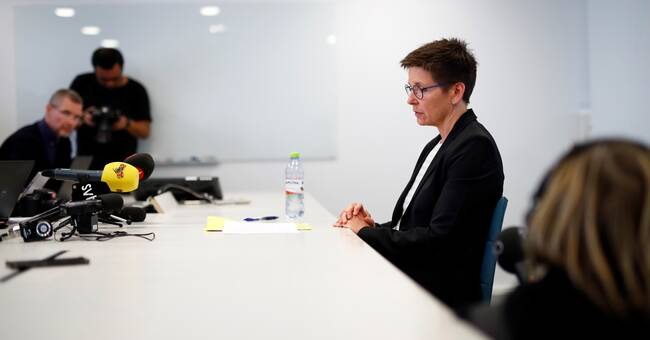In March 2018, Ann-Sofie Hermansson (S), then chairman of the municipal board in Gothenburg, intervened personally to stop a film screening with subsequent panel discussions that were planned in a municipal operation. She explicitly objected to the panel being made up of debaters Fatima Doubakil and Fatima Abdullahi. In August of the same year, city officials stopped a similar event planned at the Reclaim Pride festival, then with only Doubakil. Officials explained that the ban on allowing Doubakil and Abdullahi to appear on municipal stages was based on the city's work against violent extremism.
Hermansson and the city of Gothenburg have been criticized
for this unusual
action.
In the report on cultural freedom presented by the Swedish Agency for Cultural Analysis in June, Ann-Sofie Hermansson's intervention is highlighted as one of the clearest examples of inappropriate political control of the content of cultural life.
And the Ombudsman (JO) formally criticized the second intervention: to prohibit a public appearance in advance because of the opinions a person gives or is expected to express in violation of the constitutional freedom of expression.
Hard words.
But this is not what the current case in the Court of Appeal is about.
It is instead about how Ann-Sofie Hermansson subsequently defended and justified her intervention in the freedom of cultural life in a long series of posts on her blog.
So Doubakil and Abdullahi consider themselves slandered and report Hermansson, for in repeated and very scattered posts having associated the two debaters with Islamist terror and ideology of violence.
The district court dismissed the
indictment.
Here, the district court performed something I perceive as a couple of strange intellectual twists and turns.
Because the meaning of the term "extreme" varies over time and context, the court argued, it can not be true or false or slanderous.
The district court does not even spare us etymological references to ancient Greek to land in the obvious that "what in one context appears to be an extreme view may in a completely different context appear as belonging to the middle lane of opinions and values".
Sure, but it is probably here and now that is relevant and then it is easy to see that in the Swedish debate on Islam in the 2000s, Doubakil and Abdullahi occupy an outer edge position, one that even the ancient Greeks said extreme position. But that in itself is not a slander, but it is Hermansson's continued shift to Islamist extremism and terrorism that is the important point, which can possibly constitute slander and which deserves to be tried in court.
Then, after
rejecting a closer examination of how Hermansson uses the terms extreme and extremist in his posts with these student-friendly twists, the court still devotes several pages of the reasoning to describing a series of extreme positions from Doubakil and Abdullahi.
Extreme but by no means illegal.
Not even close.
It is difficult for me to understand the relevance, however, I understand that Hermansson's expert witnesses from the anti-terror world have made a deep impression on the court.
Here, as in all defamation cases, the interests of the individual stand against the very freedom of expression, and it is extremely strong.
The outcome of the Court of Appeal is by no means a given - but hopefully the higher court will take the opportunity to make a clearer analysis and try the right things in a serious way.
Javascript is disabled
Javascript must be turned on to play video
Read more about browser support
The browser is not supported
SVT does not support playback in your browser.
We therefore recommend that you switch to another browser.
Read more about browser support
"A good deed to have a defamation suit tried in a higher court"

